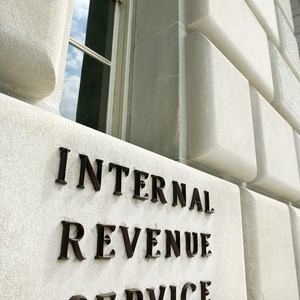
An IRS federal tax lien establishes a claim against all of a taxpayer’s property as security for a tax liability, and is filed when delinquent federal taxes remain after the government has formally demanded payment. A foreclosure terminates a property owner’s rights and eliminates any junior lienholders’ interests in the property; therefore, creditors like the IRS must receive proper notice of the sale, as a foreclosure could significantly impact its security interest in a taxpayer’s property.
Judicial vs. Nonjudicial Foreclosure
A lender initiates a judicial foreclosure by filing a lawsuit against a borrower in court for mortgage loan default. Any deficiency balance remaining after proceeds from the foreclosure sale are applied against the loan may be converted into a court judgment against the borrower. If a power of sale clause is included in the borrower’s mortgage loan documentation, a lender may initiate a nonjudicial foreclosure, which does not involve the court. This process is less costly and time-consuming than a judicial foreclosure, and any deficiency loan balance is forfeited by the lender. If the lender’s lien position is superior to the IRS tax lien, the foreclosure action -- whether judicial or nonjudicial – discharges the property from the tax lien.
Lien Priority
An IRS federal tax lien is effective the date the Government assessed the tax, and no further documentation is required to perfect the lien against the taxpayer’s property. If the IRS wants to protect the Government’s priority lien position over any of the taxpayer’s other creditors, it must file a Notice of Federal Tax Lien -- NFTL -- with the Recorder’s Office where the property is located. If the taxpayer pledged the property as security for a mortgage loan, evidenced by the lender’s recorded security instrument against the property, the lender’s lien is only considered superior if the IRS recorded its NFTL after the lender recorded its security instrument.
Notice Requirements
Since a foreclosure affects the IRS's security interest in a property, sufficient notice must be given of an upcoming foreclosure sale. The IRS requires notice to be provided at least 25 days prior to the foreclosure sale date. After receiving proper notice, the IRS identifies its lien priority and whether or not action is necessary to preserve its interest. The IRS also conducts an analysis to determine if excess proceeds from the sale are expected, if it is entitled to receipt of the funds and whether or not redemption is a viable option.
Redemption Rights
The IRS has a statutory right to purchase foreclosed property from the buyer for the foreclosure price within 120 days after the sale; this is known as the right of redemption. During the redemption period, the IRS determines if the property could be resold for more than the foreclosure sales price. If so, the IRS will redeem the property and hold a redemption sale. The proceeds from the redemption sale are then applied toward property acquisition costs, and the remaining funds are applied against the taxpayer’s outstanding tax liability. Generally speaking, the IRS will not redeem a property unless the outstanding tax liability is significant and it has a guaranteed buyer at the redemption sale.
References
- IRS.gov: Collecting Process, Legal Reference Guide for Revenue Officers, Federal Tax Liens 5.17.2
- IRS.gov: Collection Process, Federal Tax Liens, Judicial/Non-judicial Foreclosures 5.12.4
- IRS.gov: Collecting Process, Federal Tax Liens, Redemptions 5.12.5
- ForeclosureForum.com: Foreclosure and IRS’ Redemption Rights
- National Property Solutions. "What Is Foreclosure?" Accessed Aug. 31, 2020.
- Cornell Law School Legal Information Institute. "Foreclosure." Accessed Aug. 31, 2020.
Writer Bio
Blyss Cruz has called Alaska home for 30 years. She has written numerous business, financial and legal documents related to her long-time employment in both the public and private financial sectors. Cruz holds a B.S. in Paralegal Studies and an MBA in business and accounting.

